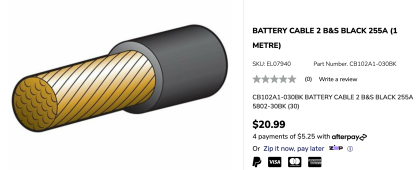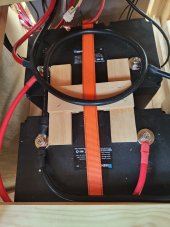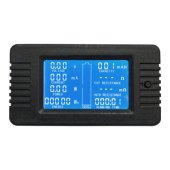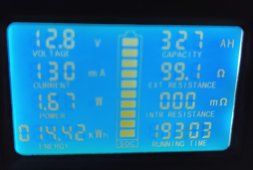Hi
I have a Renogy based setup in my van
BACKGROUND
2 off100ah batteries https://au.renogy.com/renogy-smart-lithium-iron-phosphate-battery-12-volt-100ah/
1 off 50 amp Dc to DC charger with MTTP
2 off solar panels
1 off 2000W 12V to 230V Pure Sine Wave Inverter (with UPS Function)
12volt LEDs etc etc
I'm trying to run a Nuwave induction cooktop
It is set up as per the attached pic
ISSUE
The cooktop is tripping out when running on 900 watts / low (drawing approx 850ish from the batteries) .. it will run for a few minutes then trip the whole setup ie lights cooktop invertor .. the whole deal
It will auto-reset within say 10 seconds and then away it goes .. then will trip again after a minute or 2.
THINGS I HAVE TRIED
Replaced the 1000-wat inverter for the 2000-watt inverter.
Upgraded leads from the battery to the inverter.
THOUGHTS
The 2000-watt inverter should be able to run a 900-watt cooktop ... the inverter fans aren't coming on so I'm assuming the invertor is capable of handling the load.
QUESTIONS
Why does the cooktop trip out the whole system
Do the batteries have some sort of overload protection which trips out
Happy to clarify / pics whatever .. this is driving me nuts
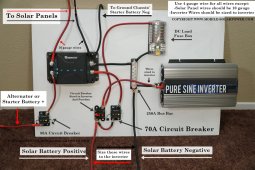
I have a Renogy based setup in my van
BACKGROUND
2 off100ah batteries https://au.renogy.com/renogy-smart-lithium-iron-phosphate-battery-12-volt-100ah/
1 off 50 amp Dc to DC charger with MTTP
2 off solar panels
1 off 2000W 12V to 230V Pure Sine Wave Inverter (with UPS Function)
12volt LEDs etc etc
I'm trying to run a Nuwave induction cooktop
It is set up as per the attached pic
ISSUE
The cooktop is tripping out when running on 900 watts / low (drawing approx 850ish from the batteries) .. it will run for a few minutes then trip the whole setup ie lights cooktop invertor .. the whole deal
It will auto-reset within say 10 seconds and then away it goes .. then will trip again after a minute or 2.
THINGS I HAVE TRIED
Replaced the 1000-wat inverter for the 2000-watt inverter.
Upgraded leads from the battery to the inverter.
THOUGHTS
The 2000-watt inverter should be able to run a 900-watt cooktop ... the inverter fans aren't coming on so I'm assuming the invertor is capable of handling the load.
QUESTIONS
Why does the cooktop trip out the whole system
Do the batteries have some sort of overload protection which trips out
Happy to clarify / pics whatever .. this is driving me nuts




